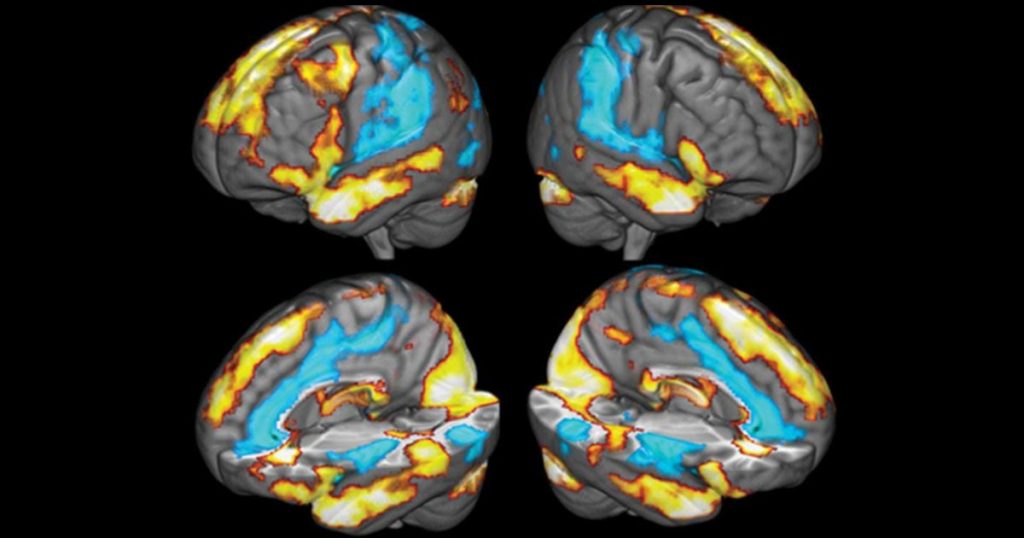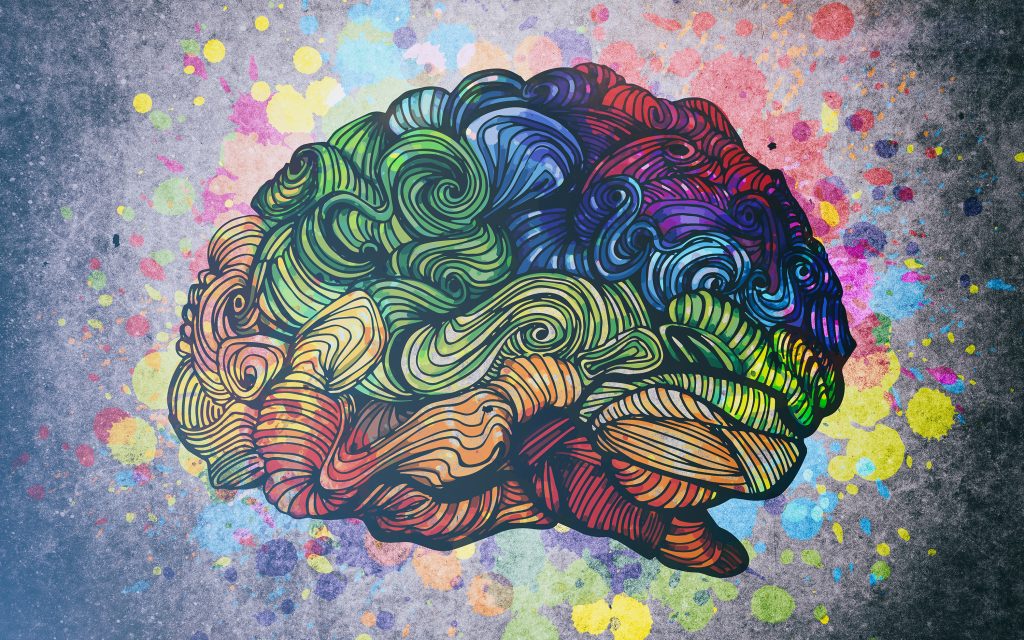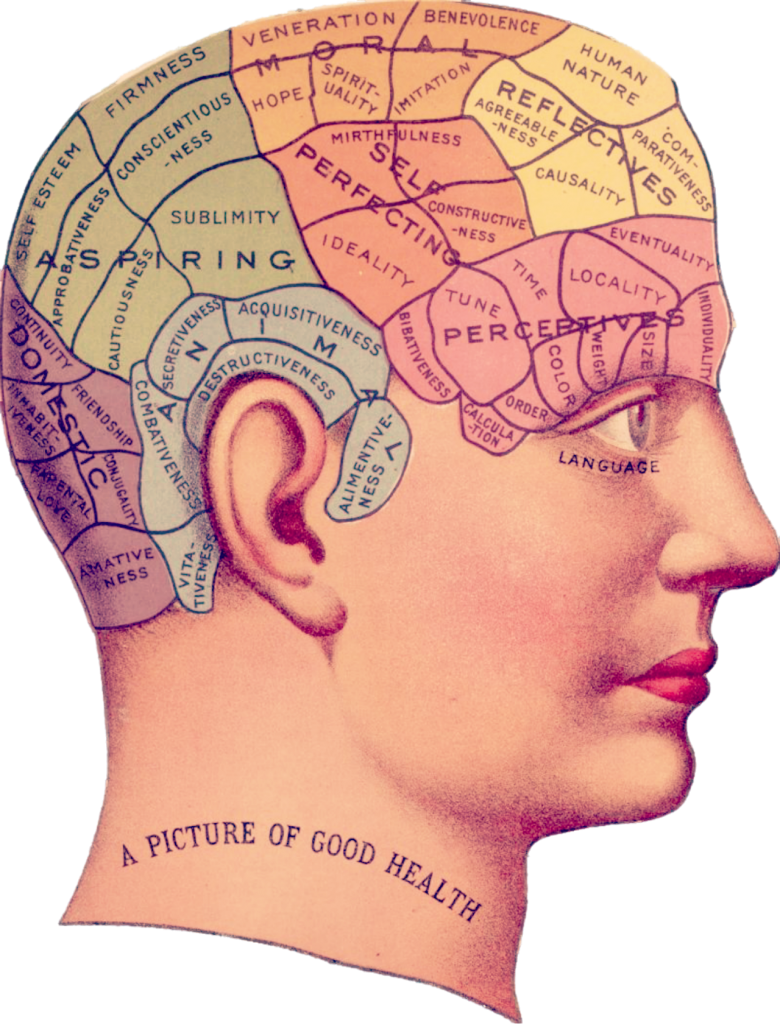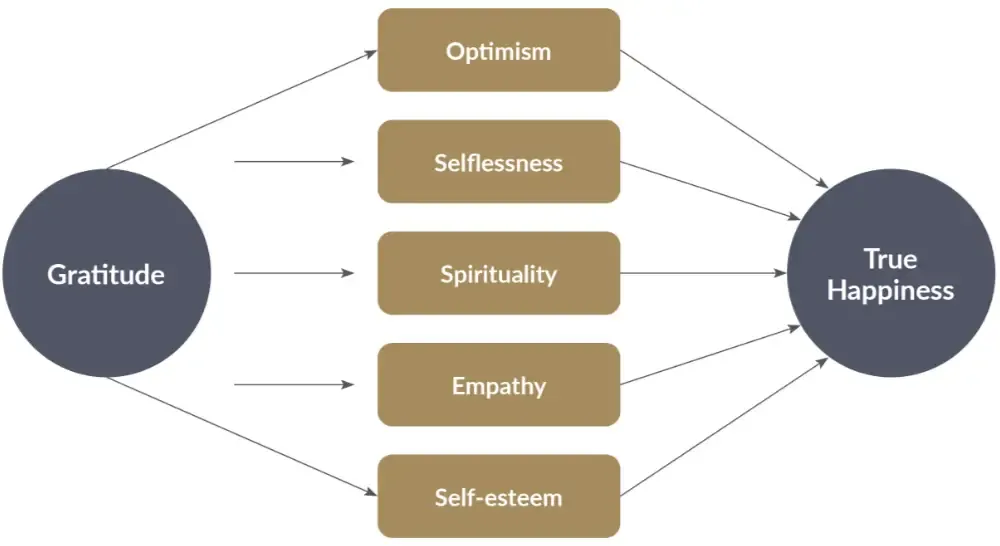If you’re looking for a way to improve your mental health and overall well-being, then you might want to consider the power of gratitude. The science of gratitude has been gaining attention in recent years, as researchers uncover the many ways in which expressing gratitude can positively impact our brains and mental health. From reducing stress and anxiety to improving sleep and self-esteem, cultivating a mindset of gratitude has the potential to transform our lives. In this article, we’ll explore the fascinating research behind gratitude and learn how incorporating gratitude practices into our daily lives can lead to a happier and more fulfilling existence. So, grab a cup of tea or coffee, get comfortable, and let’s dive into the science of gratitude.

This image is property of whyy.org.
1. The Power of Gratitude
Gratitude is a powerful emotion that has the ability to transform our lives in countless ways. But what exactly is gratitude? In its simplest form, gratitude can be defined as the appreciation for the good things in our lives. It is the recognition and acknowledgment of the positive aspects, experiences, and people that bring us joy, satisfaction, and fulfillment.
1.1 Gratitude Defined
Gratitude is often described as a state of mind or a feeling of deep appreciation. It goes beyond simply saying “thank you” to someone or something. It involves cultivating a genuine sense of gratitude within ourselves and recognizing the countless blessings and opportunities that come our way each day. Gratitude can be directed towards various aspects of our lives, including our relationships, achievements, possessions, and even challenges.
1.2 Historical Background of Gratitude
The concept of gratitude dates back centuries and can be found in various cultures and religions around the world. Philosophers like Cicero and Seneca in ancient Rome, and religious figures like Buddha and Confucius, all emphasized the importance of gratitude in leading a fulfilling and meaningful life. In more recent years, scientific research has shed light on the impact of gratitude on our brain and mental health, providing us with valuable insights into its power and potential for personal growth.
2. Gratitude and Brain Chemistry
The way our brain functions and the chemicals it produces play a significant role in our emotions and overall well-being. One key player in this process is dopamine, often referred to as the “feel-good” neurotransmitter.

This image is property of www.mindful.org.
2.1 The Role of Dopamine in Gratitude
Dopamine is associated with feelings of pleasure, reward, and motivation. When we experience something that brings us joy or makes us feel good, dopamine is released in our brain, reinforcing that behavior and encouraging us to seek it out again. Gratitude has been found to activate the release of dopamine, making us more likely to experience positive emotions and seek out opportunities for gratitude in our daily lives.
2.2 Increased Dopamine Levels through Gratitude Practices
Engaging in gratitude practices, such as gratitude journaling or expressing gratitude to others, has been shown to increase dopamine levels in the brain. These practices help us focus on the positive aspects of our lives and shift our attention away from negative thoughts and experiences. By consistently incorporating gratitude into our daily routines, we can create a positive feedback loop, reinforcing the release of dopamine and fostering a greater sense of well-being.
3. Gratitude and Neuroplasticity
Our brain has a remarkable ability to adapt and change. This concept, known as neuroplasticity, refers to the brain’s ability to rewire itself in response to experiences, thoughts, and emotions.
3.1 Brain’s Ability to Rewire Itself
Neuroplasticity allows our brain to form and strengthen connections between neurons, creating new neural pathways. This process enables us to learn new skills, develop habits, and even recover from brain injuries. The continuous practice of gratitude can shape and reinforce neural pathways associated with positive emotions, leading to an increased capacity for gratitude and overall well-being.

This image is property of cdn.grateful.org.
3.2 Gratitude’s Impact on Neural Pathways
Studies have shown that gratitude can activate the prefrontal cortex, the part of the brain responsible for decision-making, emotions, and social behavior. By regularly engaging in gratitude practices, we can strengthen the neural pathways associated with gratitude and positive emotions, making it easier for us to experience and express gratitude in our daily lives. This rewiring of our brain can have a profound impact on our overall mental health and well-being.
4. Gratitude and the Limbic System
The limbic system, often referred to as the “emotional brain,” plays a crucial role in regulating our emotions, storing memories, and processing rewards. Gratitude has a direct influence on the limbic system, shaping how we experience and regulate our emotions.
4.1 The Limbic System and Emotional Regulation
The limbic system consists of several structures, including the amygdala, hippocampus, and hypothalamus. These structures work together to regulate our emotions and stress responses. Gratitude has been found to activate the limbic system, stimulating the release of neurotransmitters like serotonin and oxytocin, which are associated with feelings of happiness, social connection, and well-being.
4.2 Gratitude’s Influence on the Limbic System
When we practice gratitude, the limbic system is activated, creating a positive feedback loop within our brain. As we experience and express gratitude, the release of serotonin and oxytocin increases, further reinforcing our feelings of happiness and social connection. This process can help us regulate our emotions more effectively and create a greater sense of emotional well-being.

This image is property of positive.b-cdn.net.
5. Gratitude and Stress Reduction
Stress is a natural and inevitable part of life. However, chronic stress can have detrimental effects on our overall health and well-being. Gratitude has been found to play a significant role in reducing stress levels and promoting a sense of calm and relaxation.
5.1 Cortisol and the Stress Response
When we experience stress, our body releases cortisol, often referred to as the “stress hormone.” Cortisol is designed to help us deal with immediate threats or challenges. However, prolonged cortisol exposure can lead to various health issues, including anxiety, depression, and impaired immune function.
5.2 Gratitude’s Role in Lowering Cortisol Levels
Studies have shown that practicing gratitude can lower cortisol levels in the body, effectively reducing the stress response. By focusing on the positive aspects of our lives and cultivating a sense of gratitude, we can counteract the negative effects of stress and promote a greater sense of well-being.
6. Gratitude and Emotional Well-being
Emotions play a fundamental role in our overall well-being and happiness. Gratitude has a profound impact on our emotional well-being by increasing positive emotions and buffering against negative emotions.

This image is property of ggsc.s3.amazonaws.com.
6.1 Increased Positive Emotions through Gratitude
When we practice gratitude, we shift our focus towards the positive aspects of our lives. This shift in perspective allows us to experience more positive emotions, such as joy, happiness, and contentment. By actively seeking out moments of gratitude and savoring them, we can cultivate a greater sense of emotional well-being.
6.2 Gratitude as a Buffer against Negative Emotions
Negative emotions, such as sadness, anger, and frustration, are a natural part of life. However, gratitude can act as a buffer against these negative emotions by helping us reframe and reinterpret challenging situations. By focusing on what we can be grateful for, even in difficult times, we can reduce the impact of negative emotions and build emotional resilience.
7. Gratitude and Mental Health
Mental health issues, such as depression and anxiety disorders, are prevalent in society. While gratitude is not a cure-all, it has been found to have a positive impact on mental health by enhancing overall well-being and reducing symptoms.
7.1 Gratitude’s Impact on Depression
Depression is characterized by persistent feelings of sadness, hopelessness, and a lack of interest in activities. Gratitude practices have been shown to increase positive emotions, improve mood, and reduce depressive symptoms. By focusing on the positive aspects of our lives and expressing gratitude, we can help alleviate the effects of depression and cultivate a greater sense of well-being.
7.2 Gratitude’s Influence on Anxiety Disorders
Anxiety disorders involve excessive worry, fear, and a sense of unease. Gratitude has been found to reduce anxiety symptoms by promoting a sense of calm and relaxation. By practicing gratitude and shifting our attention towards the positive aspects of our lives, we can help manage anxiety and improve our overall mental health.
8. Gratitude and Social Connections
Human beings are inherently social creatures, and our connections with others play a vital role in our happiness and well-being. Gratitude has a profound impact on our social bonds and can help strengthen our relationships.
8.1 Strengthening Social Bonds through Gratitude
Expressing gratitude to others can strengthen our social bonds and enhance our relationships. When we express gratitude, whether it’s through words or actions, we communicate our appreciation and strengthen the emotional connection with others. This fosters a sense of belonging and creates a positive and supportive social network.
8.2 Gratitude’s Effect on Prosocial Behavior
Prosocial behavior refers to actions that benefit others and contribute to the well-being of society as a whole. Gratitude has been found to increase prosocial behavior by promoting empathy, compassion, and generosity. By cultivating gratitude, we not only strengthen our social connections but also contribute to the overall well-being of our communities.
9. Gratitude and Self-esteem
Self-esteem is a crucial aspect of our overall well-being and influences how we perceive ourselves and interact with others. Gratitude has the power to boost self-esteem and foster self-compassion.
9.1 Boosting Self-esteem through Gratitude
Practicing gratitude helps shift our focus towards our strengths and achievements, promoting a positive self-image and boosting self-esteem. By recognizing our own worth and the things we are grateful for within ourselves, we can cultivate a greater sense of self-worth and confidence.
9.2 Gratitude’s Role in Self-compassion
Self-compassion involves extending kindness, understanding, and forgiveness towards oneself. Gratitude can enhance self-compassion by helping us appreciate our own efforts and strengths. By practicing gratitude towards ourselves, we can cultivate a sense of self-love and acceptance, leading to improved mental and emotional well-being.
10. Cultivating Gratitude in Daily Life
Incorporating gratitude into our daily lives is essential for reaping the benefits it offers. Here are two powerful ways to cultivate gratitude:
10.1 Gratitude Journaling
Keeping a gratitude journal is a simple yet powerful practice. Set aside a few minutes each day to write down three to five things you are grateful for. These can be big or small, ranging from a beautiful sunset to a supportive friend or a personal achievement. By reflecting on the positive aspects of your day, you can cultivate a greater sense of gratitude and well-being.
10.2 Expressing Gratitude to Others
Taking the time to express gratitude to others is a meaningful way to strengthen social connections and increase your own sense of gratitude. Whether it’s sending a heartfelt thank-you note, expressing gratitude in person, or performing acts of kindness, these simple gestures can have a profound impact on both you and the recipient. By actively seeking out opportunities to express gratitude, you can create a positive ripple effect in your relationships and overall well-being.
In conclusion, gratitude is a powerful and transformative practice that can have a profound impact on our brain chemistry, neural pathways, emotional well-being, stress levels, mental health, social connections, and self-esteem. By incorporating gratitude into our daily lives through practices like journaling and expressing gratitude to others, we can unlock its potential and cultivate a greater sense of happiness, fulfillment, and harmony within ourselves and with others. So, why not start embracing the power of gratitude today and unleash your true potential for a happier and more meaningful life?


